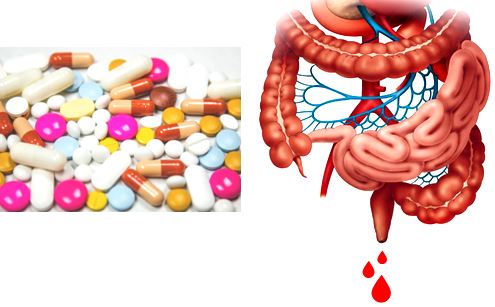ROLE OF NON STEROIDAL ANTI-INFLAMMATORY DRUGS IN ACUTE UPPER GASTROINTESTINAL BLEEDING
Keywords:
NSAIDs, gastrointestinal bleedingAbstract
Objectives: Many patients presented to the causality with upper gastrointestinal bleeding, which is a serious condition associated with significant morbidity and mortality especially in elderly patients and those with coexisting medical diseases. The purpose of the study was to assess the general use of NSAIDs and their relation to upper gastrointestinal bleeding.
Methods: Cross sectional study on patients who were referred for endoscopy for upper gastrointestinal bleeding in Sulaimany Teaching Hospital during the period from January to December 2016. All of them had been exposed to full history taking regarding age, gender, smoking, alcohol and medication used in addition to thorough physical examination and upper gastrointestinal endoscopic examination with biopsy when indicated.
Results: This study enrolled 100 patients with upper GIT bleeding and showed that 48% of those with upper GIT bleeding were using NSAIDs, with male to female ratio of approximately 2:1, and 37 patients (77.1%) of those who were taken NSAIDs, did not use PPI concomitantly.
Conclusion: The study also revealed that elderly patients taking NSAIDs were at higher risk of developing upper GIT bleeding.
Peer Review History:
Article received on- 9 August; Revised 3 September; Accepted 14 October; Available online 15 November 2016
Academic Editor:
Dr. A.A. Mgbahurike , University of Port Harcourt, Nigeria, amaka_mgbahurike@yahoo.com
, University of Port Harcourt, Nigeria, amaka_mgbahurike@yahoo.com
Reviewer(s) detail:
Dr. Sally A. El-Zahaby , Pharos University in Alexandria, Egypt, sally.elzahaby@yahoo.com
, Pharos University in Alexandria, Egypt, sally.elzahaby@yahoo.com
Kian Navaee , Shahre Daru Pharmaceutical Co., Iran, kian.navaee@chemist.com
, Shahre Daru Pharmaceutical Co., Iran, kian.navaee@chemist.com
Downloads

Published
How to Cite
Issue
Section

This work is licensed under a Creative Commons Attribution-NonCommercial 4.0 International License.










 .
.